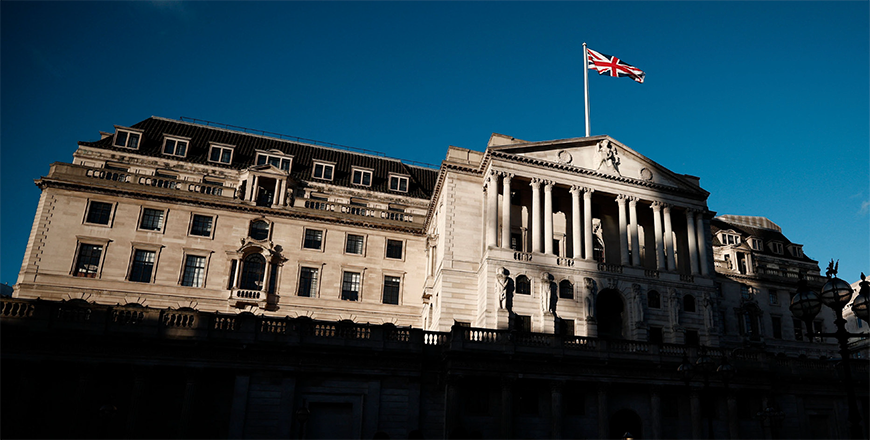LONDON — The Bank of England (BoE) on Thursday kept its key interest rate at 4.75 per cent, deciding against a cut in line with the US Federal Reserve (Fed), as UK inflation rises again.
"We've held interest rates today following the two cuts since the summer," BoE Governor Andrew Bailey said in a statement.
"We need to make sure we meet the 2 per cent inflation target on a sustained basis," he added following a regular policy meeting and after official data this week showed UK annual inflation rising to 2.6 per cent.
The expected rate decision came a day after the Fed cut US borrowing costs by a quarter-point but signalled fewer reductions for next year.
The European Central Bank cut eurozone rates last week while the Bank of Japan made no change in a decision announced Thursday.
Britain's finance minister Rachel Reeves said she supported the latest BoE call despite the pressure that it puts on Britons.
Had the BoE cut its rate, retail banks would likely have followed suit by reducing borrowing costs on mortgages.
"I know families are still struggling with high costs," Reeves said Thursday.
"We want to put more money in the pockets of working people, but that is only possible if inflation is stable and I fully back the Bank of England to achieve that."
Bailey joined five other policymakers in voting for no change, while the remaining three called for a cut of 0.25 per centage points as they highlighted "sluggish demand and a weakening labour market".
"The Bank of England is ringing in the same discordant notes of caution as the Federal Reserve," noted Susannah Streeter head of money and markets at Hargreaves Lansdown.
"The Fed's guidance yesterday of just two further interest rate cuts next year sparked nervousness... and the Bank's decision has done little to provide much cheer."
Global stock markets retreated following the Fed's update, while reaction to the BoE's action was muted.
Britain's Consumer Prices Index reached 2.6 per cent in the 12 months to November, up from 2.3 per cent for October, data showed Wednesday.
CPI had struck a three-year low of 1.7 per cent in September before higher energy bills pushed it back above the BoE's inflation target.
November's additional inflation rise is a further blow to the Labour government, which has found efforts to grow the economy come unstuck since winning power in July.
The BoE reduced its key interest rate in August for the first time since early 2020, from a 16-year high of 5.25 per cent as UK inflation returned to normal levels.
It cut further last month, while analysts on Thursday forecast that the next reduction will occur in February.
Major central banks started this year to cut interest rates that had been hiked in efforts to tame inflation.
UK inflation had soared to above 11 per cent in October 2022, the highest level in more than four decades, as the Russia-Ukraine war cut energy and food supplies, sending prices soaring.
Companies faced supply constraints also as they struggled to return to the pre-COVID rhythm of working.
